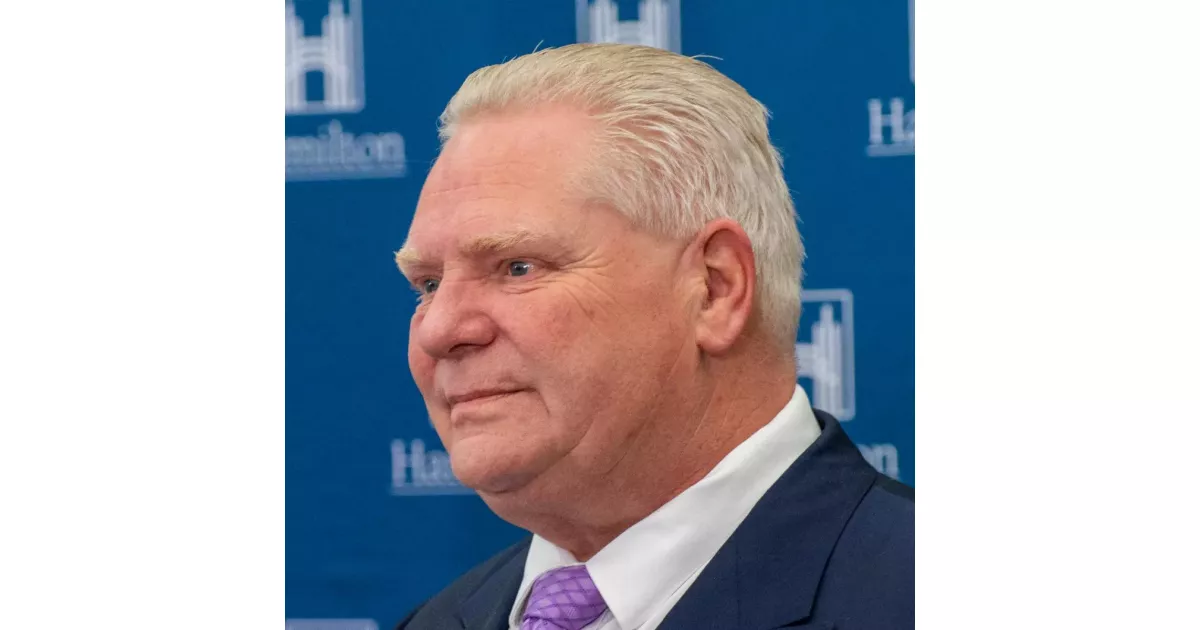A closer look at the defining struggles that shaped Doug Ford's life and career.
Doug Ford is a Canadian politician and businessman currently serving as the 26th Premier of Ontario since 2018. He is also the leader of the Progressive Conservative Party. Ford represents the Toronto riding of Etobicoke North in the Legislative Assembly of Ontario.
2012: Public weight loss challenge
In 2012, Doug Ford publicly attempted a weight loss challenge.
July 2018: Gas Prices Rise in Ontario
In July 2018, the average price of gas in Ontario was 130.1 cents per litre, according to fuel price analyst Patrick DeHaan. He noted that this price reflected the drop in oil prices, not the carbon tax.
September 1, 2018: Deadline for Provinces to Adopt Carbon Pricing
In July, Prime Minister Justin Trudeau announced that provinces failing to adopt a carbon pricing mechanism by September 1, 2018, would face a federal carbon tax of $20/tonne starting in January 2019.
November 2018: Ontario Government Loses Revenue Due to Cap-and-Trade Elimination
By mid-November 2018, The Globe and Mail reported that the Ontario government had lost $2.7 billion in revenue, including $1.5 billion due to the elimination of the cap-and-trade program.
December 5, 2018: Washington regulators reject Hydro One's takeover of Avista
On December 5, 2018, the Washington Utilities and Transportation Commission rejected Hydro One's $3.4 billion takeover of Avista due to political risks associated with Ontario's leadership. The rejection triggered a CA$138 million break fee, potentially impacting Ontario ratepayers.
December 6, 2018: Ford government tables Bill 66
On December 6, 2018, the Ford government introduced Bill 66, an omnibus bill allowing municipalities to request the provincial government override regulations deterring businesses from locating in the region. Concerns were raised by political opponents and environmental groups that the bill's vague language could lead to the bypassing of clean water regulations and other environmental protections.
2018: Sued over Rob Ford's estate mismanagement
In 2018, Doug Ford was sued by his sister-in-law for mismanagement of Rob Ford's estate, alleging that their actions deprived her and her children of due compensation, while Doug alleged that the claims amounted to extortion.
2018: Video emerges of Ford discussing Greenbelt development
In 2018, before being elected, a video surfaced showing Ford stating he would "open up a big chunk of the Greenbelt" if elected. Following public backlash, he promised to replace any removed land and aimed to increase housing supply to lower costs. He also pledged to maintain rent control but later removed it for newly built or converted rental units after taking office.
January 2019: Federal Carbon Tax Imposed on Ontario
In January 2019, a federal carbon tax of $20/tonne was imposed on Ontario because the province did not adopt its own carbon pricing mechanism by the September 1, 2018 deadline.
2019: Ford Government Adjusts Cost-Sharing Arrangement for Toronto Public Health
In 2019, the Doug Ford government announced that it would adjust the cost-sharing arrangement for Toronto Public Health and Toronto Paramedic Services resulting in retroactive cuts that would total $177 million a year and $1 billion cut in Toronto over 10 years, but after backlash, announced that the province would keep the cost-sharing arrangement and re-evaluate it at the end of the fiscal year.
2019: Ontario Information and Privacy Commissioner Orders Release of Mandate Letters
In 2019, the Ontario information and privacy commissioner ordered the release of mandate letters requested by the Canadian Broadcasting Corporation through a freedom of information request, however, they were not released to the public. The final appeal of the decision is now being sent to the Supreme Court of Canada.
January 27, 2020: First Confirmed Case of COVID-19 Reported in Ontario, Canada
On January 27, 2020, the first confirmed case of COVID-19 in Canada was reported in Ontario.
March 11, 2020: World Health Organization Recognizes COVID-19 as a Pandemic
On March 11, 2020, the World Health Organization recognized the COVID-19 outbreak as a pandemic, highlighting its global impact.
August 2020: Criticized Trump's aluminum tariffs
In August 2020, Doug Ford criticized Donald Trump's policy regarding tariffs on Canadian aluminum imports, deeming it "totally unacceptable".
2020: Ford Government Spends Less on Health Care Than Budgeted
In 2020, Doug Ford's government spent $3.5 billion less on health care than initially budgeted.
March 2021: Ford Accuses MPP Sol Mamakwa of 'Jumping the Line' for COVID-19 Vaccine
In March 2021, Ford publicly accused MPP Sol Mamakwa of "jumping the line" to receive his second dose of a COVID-19 vaccine, despite being eligible to receive it.
March 25, 2021: Supreme Court Upholds Federal Carbon Tax
On March 25, 2021, the Supreme Court of Canada ruled that the federal government has the constitutional authority to introduce pollution pricing on behalf of provinces without their own regimes.
April 2021: Calls for Ford's Resignation and Isolation Due to COVID-19
In April 2021, amidst handling of the COVID-19 crisis, calls for Ford's resignation grew. Ford also revealed that he had been in isolation following contact with a staffer who contracted COVID-19.
April 16, 2021: Ford Announces Stricter COVID-19 Restrictions, Faces Backlash, and Reverses Enforcement Measures
On April 16, 2021, amid growing COVID-19 case numbers, the Ford government announced a province-wide stay-at-home order, closing outdoor amenities including playgrounds, and authorizing police to require pedestrians and drivers to provide their home address and reason for being out. After significant backlash and refusal from police services, Ford promptly rolled back the new enforcement provisions and reopened playgrounds, while keeping other outdoor amenities closed.
April 30, 2021: Ford Requests Federal Government to Stop International Students from Entering Ontario
On April 30, 2021, Ford asked the federal government to stop international students from coming into Ontario in an effort to curb the third wave of COVID-19.
September 2021: Ontario Judge Issues Injunction on Mining in Wiisinin Zaahgi'igan
In September 2021, an Ontario judge issued an injunction on mining in Wiisinin Zaahgi'igan (an area sacred to the Ginoogaming First Nation peoples) because the Ontario government did not consult with the Ginoogaming as is their constitutional duty.
December 2021: Ford Government Announces New Restrictions on Indoor Settings During Omicron Variant Surge
In December 2021, during the emergence of the Omicron variant of COVID-19, Ford's government announced new restrictions on indoor settings.
January 3, 2022: Ford Announces Ontario Moving into Modified Step 2, Closing Indoor Dining, Gyms, Movie Theatres and Schools
On January 3, 2022, Ford announced that Ontario would be moving into a modified Step 2 on January 5, closing indoor dining, gyms, movie theaters, and schools to combat the spread of COVID-19.
November 7, 2022: Ford Announces Rescission of Bill 28 and Resumes Negotiations with CUPE
On November 7, 2022, Doug Ford announced that he would rescind Bill 28 and resume negotiations with CUPE following a province-wide strike.
2022: Controversy over Greenbelt properties released after re-election in 2022
In 2022, after re-election, Ford faced controversy over Greenbelt properties released for development. 7,400 acres were removed, while 9,400 acres of land with lesser conservation value, already protected from development, were added.
February 2023: OPP investigates Greenbelt development decision
In February 2023, the Ontario Provincial Police anti-rackets branch was investigating complaints about the Ford government's decision to open up part of the Greenbelt for development.
July 2023: Ford Government Pledges Funding to Combat ER Closures
In July 2023, the Ford government pledged $44 million to combat the 1,199 ER closures in Ontario, which mostly impacted rural areas.
August 9, 2023: Auditor General releases report on Greenbelt swap-out
On August 9, 2023, the Auditor General's report on the Greenbelt swap-out revealed that the government's flawed process favoured certain developers who were set to earn over $8 billion. The report also stated that the Greenbelt changes were not necessary to meet Ontario's housing target and criticized Housing Minister Steve Clark's chief of staff for neglecting environmental, agricultural, and financial risks.
August 2023: OPP asks RCMP to take over Greenbelt development file
In August 2023, to avoid any perceived conflict of interest, the OPP asked the RCMP to take over the investigation into the Ford government's decision to open up a portion of the Greenbelt for development.
September 7, 2023: Ombudsman of Ontario Releases Investigation into Long-Term Care Oversight During COVID-19 Pandemic
On September 7, 2023, the Ombudsman of Ontario released a report detailing the collapse of the long-term care inspection system during the COVID-19 pandemic and how the Ministry failed to protect residents.
May 2024: Ontario government to spend $400 million on parking for Therme spa
In May 2024, the cost to taxpayers to provide a parking component for the Therme spa reached $400 million, even with nearby expanded GO train station and subway line construction. According to the auditor general, other bids would have privately funded this parking, and some included a public park.
November 2024: Government Invests in Nursing Education to Address Staff Shortages
In November 2024, the Ford government allocated $500 million towards educating more nurses and providing specialized training for current ones in response to increasing ER and urgent care closures.
December 2024: Ontario Debt Increases Significantly Under Ford's Leadership
As of December 2024, Ontario's debt has increased by $86 billion since Doug Ford took office, a much larger increase than under his predecessor.
2024: Ontario Place Redevelopment Cost Increases to $2.2 Billion
As of 2024, the total cost of the Ontario Place redevelopment has increased to $2.2 billion, a significant rise from the approximately $400 million predicted in 2019.
2024: Criticism Over Delayed Opening of Eglinton Crosstown
In 2024, Doug Ford faced criticism for the continued delay in opening the Eglinton Crosstown, which reached its 14th year of construction, leading to calls for a public inquiry.
2024: Reducing Gridlock, Saving you Time Act removes Indigenous Consultation Requirement
In 2024, Ford's Reducing Gridlock, Saving you Time Act removed the requirement for future Indigenous consultation for the upcoming highway 413, with an Indigenous consultation period for the bill of only 30 days, which was considered by the regional chief as 'too short'.
2024: Ontario Science Centre Closure and Relocation
In 2024, the Ford government closed the Ontario Science Centre based on a report citing potential roof tile collapse, despite the original builder offering repairs. Nobel laureate Geoffrey Hinton pledged $1 million to help rebuild the science centre, but it did not stop the Ford government's plan. The updated 2024 budget increased the cost to 1.4 billion to build the new smaller science center, which is less than maintaining it at its current location which is assessed at 1.3 billion.
January 8, 2025: Involved in car collision
On January 8, 2025, Doug Ford was unharmed after an OPP vehicle he was travelling in was involved in a collision on Highway 401.
Mentioned in this timeline

Donald John Trump is an American politician media personality and...
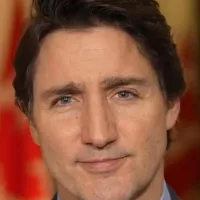
Justin Trudeau served as the rd Prime Minister of Canada...
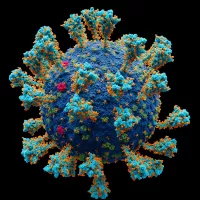
Coronaviruses are a family of RNA viruses affecting mammals and...
China officially the People's Republic of China is an East...

Inflation in economics signifies a rise in the average prices...
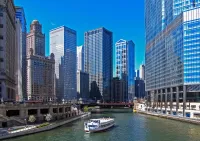
Chicago is the most populous city in Illinois and the...
Trending

12 minutes ago Uchijima and Kalinina to meet for the Antalya 2026 Megasaray Hotels Open title.
13 minutes ago Southern Lottery Results for March 1st: Searching for the Winning Series
13 minutes ago Cyprus Airports Cancel Flights Amid Rising Tensions Between US, Israel, and Iran.

1 hour ago Kansas City Man Steals Greyhound Bus, Leading Police on I-29 Chase
1 hour ago Matildas Host Filipinas in Asian Cup Opener; Kerr Addresses Injury, Self-Doubt.
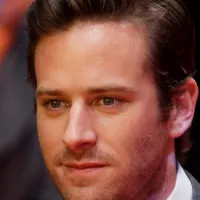
1 hour ago Armie Hammer's Post-Scandal Life: Therapy, Fatherhood, Acting Comeback, and SNL Satire.
Popular

Jesse Jackson is an American civil rights activist politician and...

XXXTentacion born Jahseh Dwayne Ricardo Onfroy was a controversial yet...

Hillary Diane Rodham Clinton is a prominent American politician lawyer...

Kashyap Pramod Patel is an American lawyer who became the...

Barack Obama the th U S President - was the...

Michael Joseph Jackson the King of Pop was a highly...
